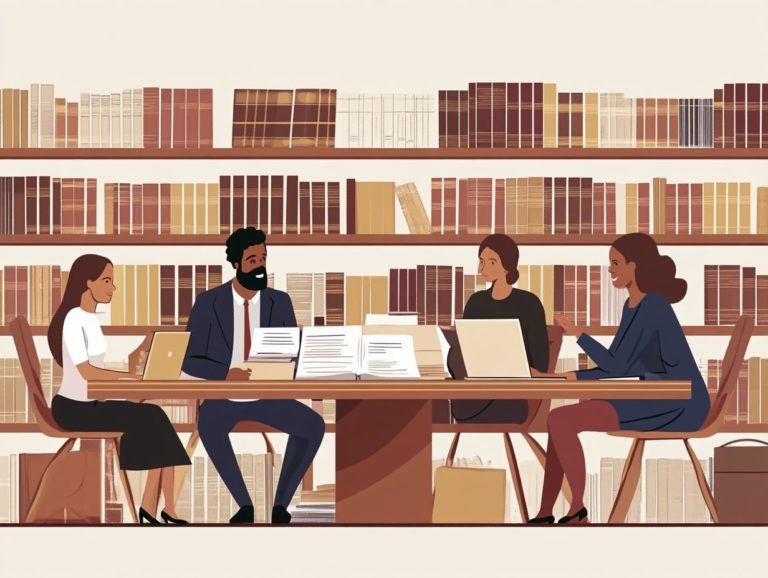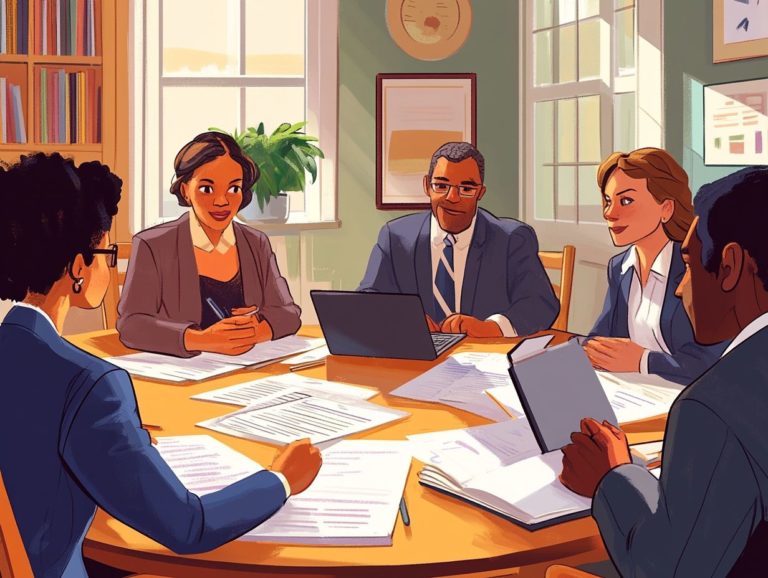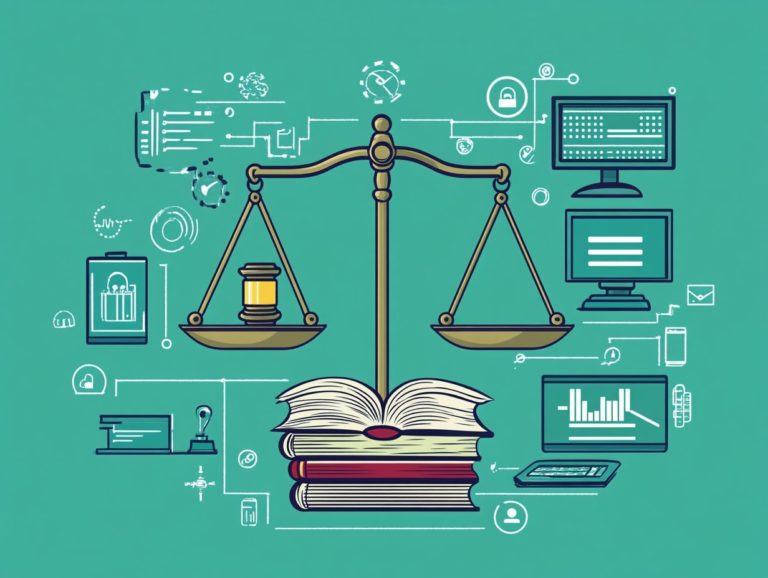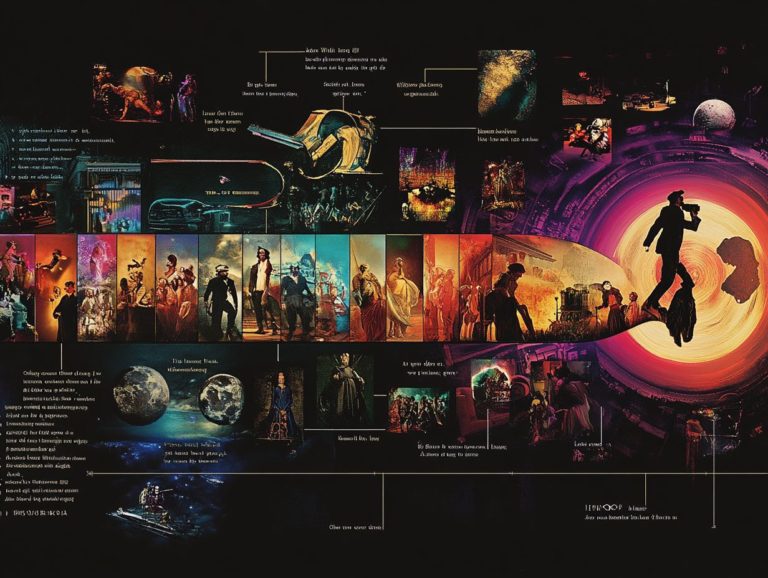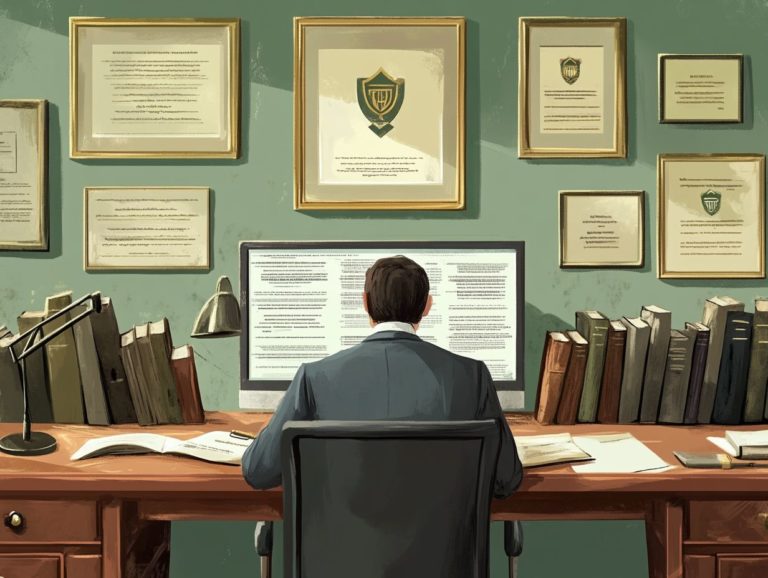The Future of Copyright in Emerging Technologies
Are you ready to explore how new technology is reshaping copyright and your rights as a creator? As emerging technologies redefine the realms of creativity and innovation, the implications for copyright law are becoming increasingly complex and urgent.
This article delves into the current state of copyright in relation to these technologies. We will examine existing laws, the challenges of enforcement, and the ongoing debates surrounding fair use.
It will also explore potential adaptations and collaborative strategies for effective copyright management. You will also consider the future of copyright as it evolves alongside transformative advancements.
Together, we ll navigate this dynamic interplay between law and technology, ensuring you remain informed and prepared for what lies ahead.
Contents
- Key Takeaways:
- Current State of Copyright Laws in Relation to Emerging Technologies
- Challenges and Controversies Surrounding Copyright in Emerging Technologies
- Potential Solutions and Adaptations for Copyright in Emerging Technologies
- What Lies Ahead for Copyright in the Tech World?
- Frequently Asked Questions
Key Takeaways:
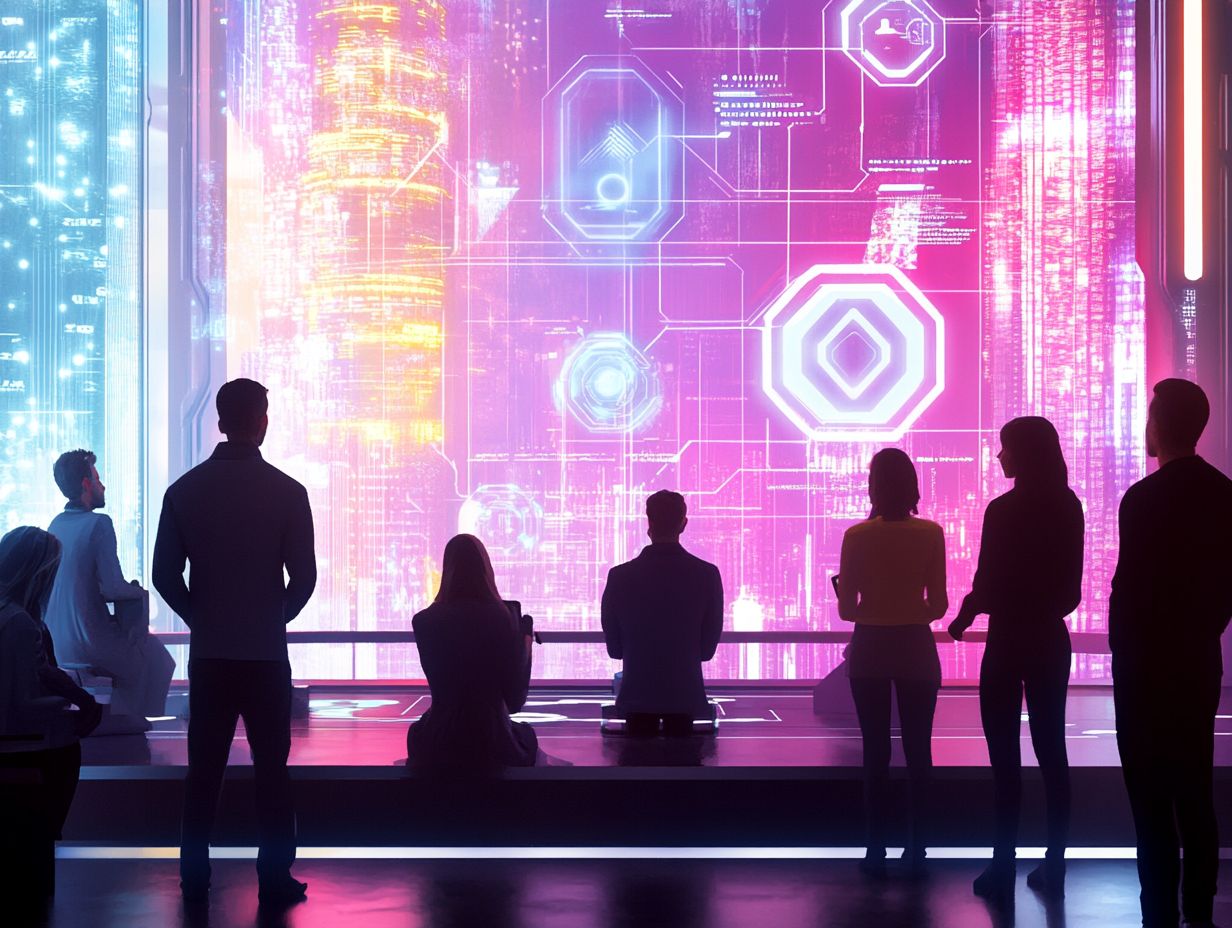
- The rapid advancement of technology has led to challenges and controversies surrounding copyright laws, particularly in enforcement, protection, and fair use.
- Proposed changes to copyright laws and collaborative approaches are being explored as potential solutions to adapt to the constantly evolving landscape of emerging technologies.
- The future of copyright in emerging technologies is uncertain, with predictions on how it will evolve and impact creators, consumers, and the industry as a whole.
Defining Emerging Technologies and Their Impact on Copyright
Emerging technologies, especially artificial intelligence (AI) models like ChatGPT and Bard AI, are transforming the landscape of copyright law. This presents a mix of challenges and opportunities for you as a content creator or rights holder.
With technology companies pouring resources into generative AI, the implications for copyright protection and ownership of digital content have become intricate. This complexity is particularly relevant as you navigate copyright infringement claims and the rising prevalence of AI-generated content.
The rise of these AI technologies has sparked debates about ownership and licensing agreements. Questions inevitably arise regarding who holds the rights to a creation the human creator, the AI developer, or even the AI itself.
In the media industry, concerns have emerged. Public figures like Sarah Silverman have expressed worries about unauthorized uses of their likeness or voice in AI-generated content. Similarly, author Richard Kadrey has raised issues about AI models emulating established writing styles, complicating the line between inspiration and infringement.
This evolving landscape demands our attention. We need to thoroughly reevaluate existing copyright laws to ensure they accommodate technological advancements and safeguard your rights as a creator.
Current State of Copyright Laws in Relation to Emerging Technologies
The current landscape of copyright laws regarding emerging technologies reveals a sophisticated interaction between established legal rights that protect creations of the mind and the swift advancement of digital content creation, highlighting the future of patents in a digital world.
It s imperative for legal frameworks to evolve. Copyright protection must effectively navigate the complexities introduced by AI-generated content and the changing dynamics of digital media consumption.
Existing Copyright Laws and Their Applicability to Emerging Technologies
Existing copyright laws, which have historically safeguarded creative works in the digital landscape, are now facing big challenges related to emerging technologies like large language models and generative AI.
As AI-generated content becomes more commonplace, copyright infringement and ownership rights take center stage. This scenario raises crucial questions for you as a content creator who depends on these tools for generating new material.
Understanding the fair use doctrine legal principles allowing limited use of copyrighted material without permission can be complicated, straddling the fine line between inspiration and appropriation. High-profile lawsuits involving tech giants like OpenAI and Meta highlight the contentious nature of authorship and intellectual property rights in this fast-evolving arena.
These cases not only challenge established norms but also signal important implications for artists and developers. You need to rethink your strategies and protections in a world increasingly shaped by advanced AI technologies.
Challenges and Controversies Surrounding Copyright in Emerging Technologies
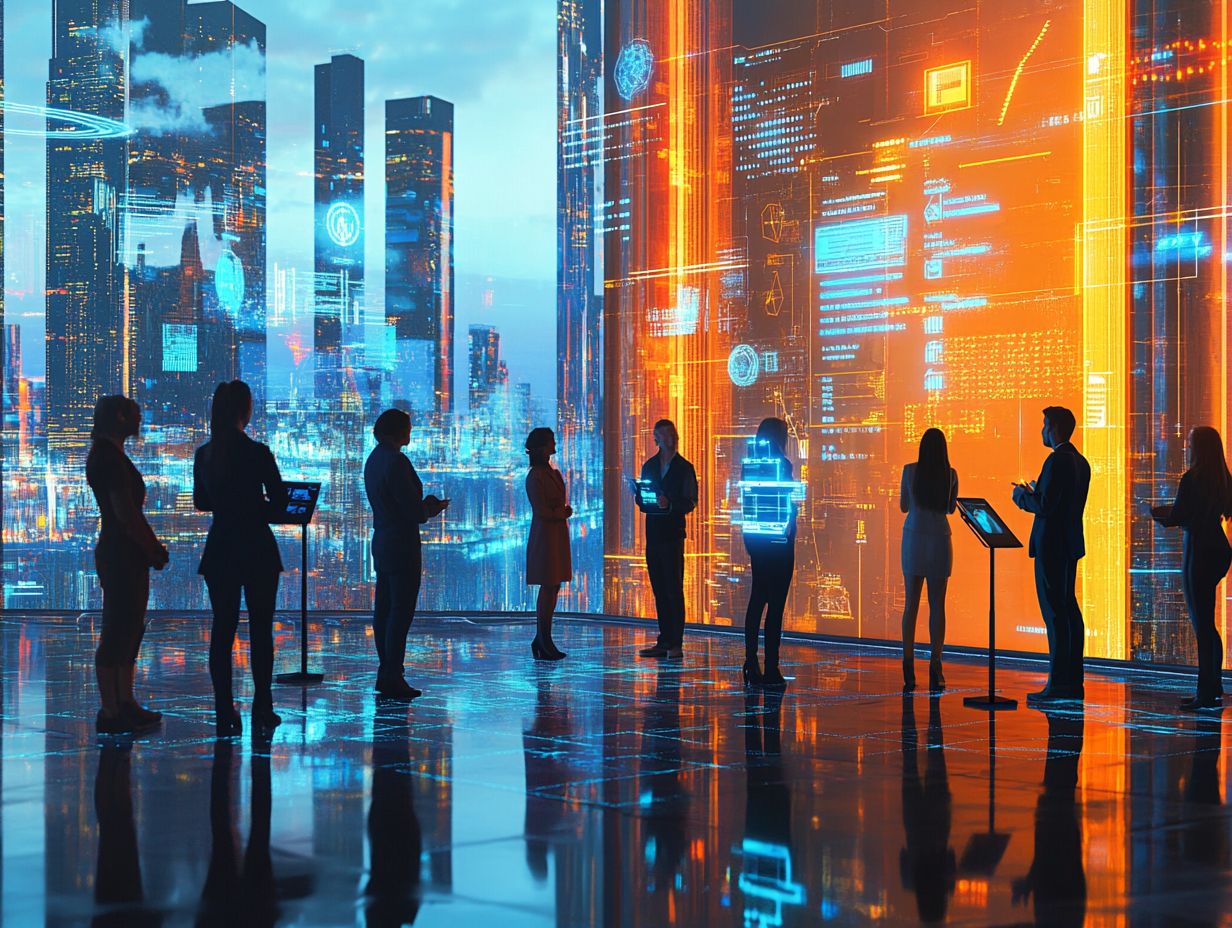
The challenges and controversies surrounding copyright in emerging technologies are complex, influenced by ethical considerations, enforcement hurdles, and the evolving landscape of digital replicas in media.
As generative AI reshapes content creation, the legal implications of copyright infringement and fair use are crucial topics for policymakers and rights holders to navigate in this dynamic environment.
Issues with Enforcement and Protection of Copyright in Emerging Technologies
Enforcement and protection of copyright in emerging technologies present significant challenges for rights holders, especially with the rapid evolution of AI.
Tracking copyright claims and damages is complex for content creators and tech companies alike. This shifting landscape brings forth enforcement challenges, including the unauthorized use of copyrighted materials in training algorithms, complicating liability determination.
You might struggle with the fact that traditional legal frameworks often fall short in addressing these technological advancements. As technology companies push innovation boundaries, they must navigate the fine line between encouraging creativity and protecting rights to one’s creations.
New legal frameworks need development to keep pace with swift technological changes. These frameworks should create pathways where rights holders can safeguard their work while embracing innovation.
Debates over Fair Use and Transformative Works
The debates over fair use and transformative works in emerging technologies reveal the ongoing struggle between copyright protection and the need for innovation. As generative AI creates new forms of expression, the legal intricacies of what qualifies as fair use grow complex.
This complexity intensifies with the myriad ways technologies can reinterpret existing works. The case of “Cariou v. Prince” illustrates how reinterpretation through new media can be classified as transformative and fall under fair use.
Furthermore, the rise of AI-generated artworks raises critical questions about the legitimacy of borrowing from existing copyrighted content without crossing legal boundaries. As professionals navigate these ambiguous waters, the intersection of creativity and legality continues to evolve, highlighting the delicate balance between innovation and protection.
Potential Solutions and Adaptations for Copyright in Emerging Technologies
In light of the changing landscape of copyright intersecting with emerging technologies, potential solutions and adaptations are being explored. This includes copyright reforms and collaborative approaches that engage both technology companies and content creators.
These strategies aim to balance copyright protection with the practicalities of digital content creation and distribution.
Proposed Changes to Copyright Laws
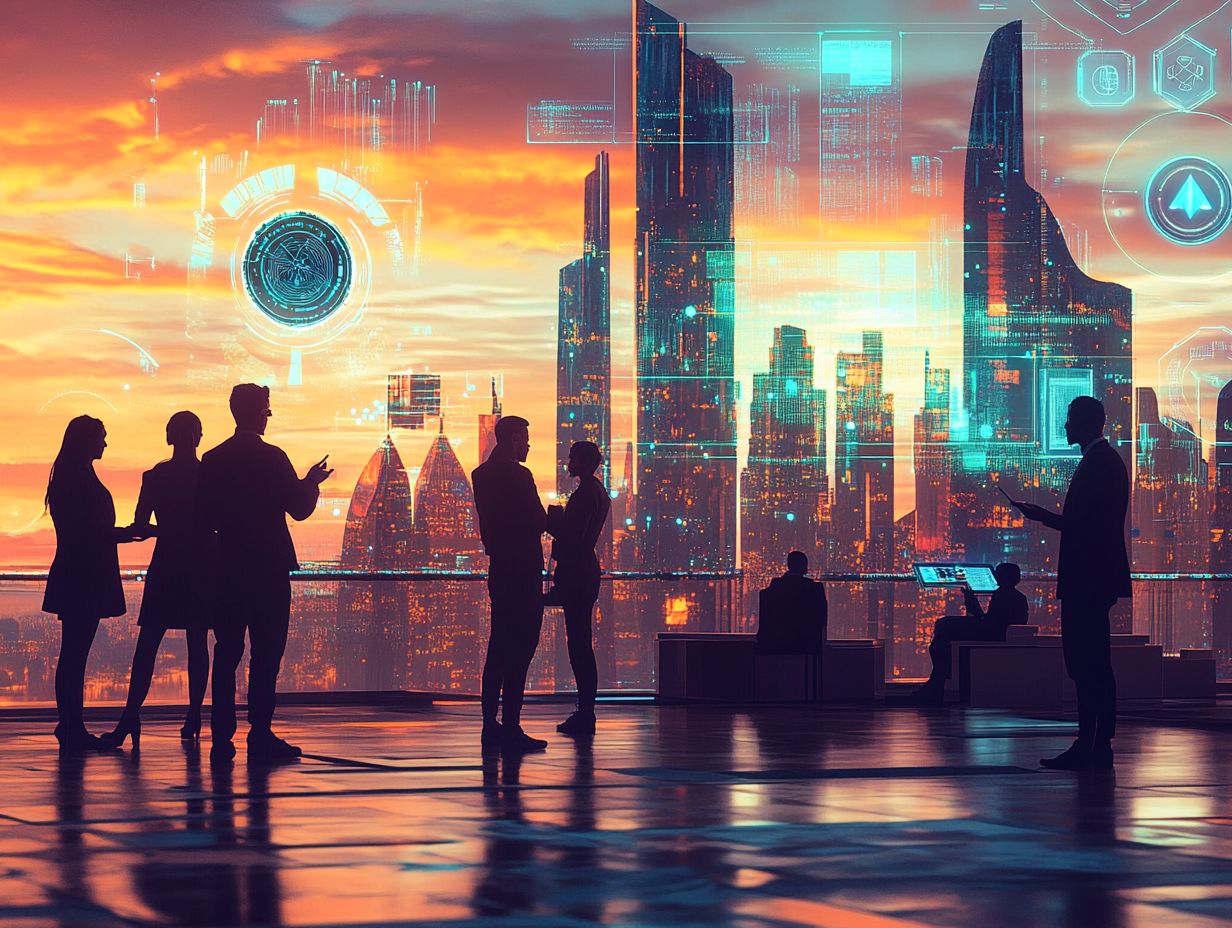
Proposed changes to copyright laws are gaining attention in discussions about adapting legal frameworks to AI technologies and their impact on media policy. These reforms aim to clarify ownership rights and licensing agreements regarding AI-generated content.
As these discussions unfold, you must explore how these changes will impact both creators’ rights and AI’s evolving role in content production.
Key reforms to monitor include:
- Defining the rights to one’s creations for AI systems,
- Determining how human involvement influences ownership,
- Ensuring fair compensation mechanisms for original creators whose work may serve as training data.
There’s a growing need to consider liability issues surrounding AI-generated works, creating a balanced framework that fosters innovation while safeguarding traditional content creators’ interests.
Collaborative Approaches for Copyright Management in Emerging Technologies
Collaborative approaches to copyright management in emerging technologies involve strategic partnerships between technology companies and content creators, aimed at establishing effective copyright protections. These initiatives work toward creating a more transparent and equitable framework for managing rights in the digital age.
By leveraging shared expertise and resources, these collaborations empower creators while addressing the complex challenges posed by digital distribution. For instance, platforms like YouTube have partnered with music rights organizations to implement Content ID systems, which help track copyrighted material and ensure fair compensation for artists.
Initiatives like Creative Commons offer flexible licensing options that foster an environment where technology firms and artists can explore innovative ways to share and monetize content. This ultimately transforms how copyright is perceived and managed in today’s interconnected media landscape.
What Lies Ahead for Copyright in the Tech World?
The future of copyright in the digital age is poised for remarkable transformation as regulatory trends adapt to swift advancements in digital content creation and distribution.
As AI technologies push the boundaries of traditional copyright frameworks, it becomes increasingly clear that innovative reforms are essential for navigating this evolving landscape.
Predictions and Speculations on the Evolution of Copyright in Emerging Technologies
Predictions about the evolution of copyright in the context of emerging technologies point to a shift towards more nuanced approaches that address the complexities of AI-generated content and its legal ramifications, as discussed in the future of international IP law.
As the landscape changes, it s crucial to understand that copyright protections must adapt significantly. Experts suggest that as artificial intelligence increasingly influences content creation, lawmakers will be pressured to reassess existing legal frameworks. This could lead to new classifications of rights distinguishing between works created by humans and those generated by machines.
You must understand how these changes will impact your rights as a creator! Navigating a landscape where ownership is less clear than before will be essential.
Legal scholars propose that a collaborative approach could emerge, promoting partnerships between tech providers and content creators. This would help establish transparent guidelines that safeguard the interests of both parties while encouraging creativity.
Frequently Asked Questions
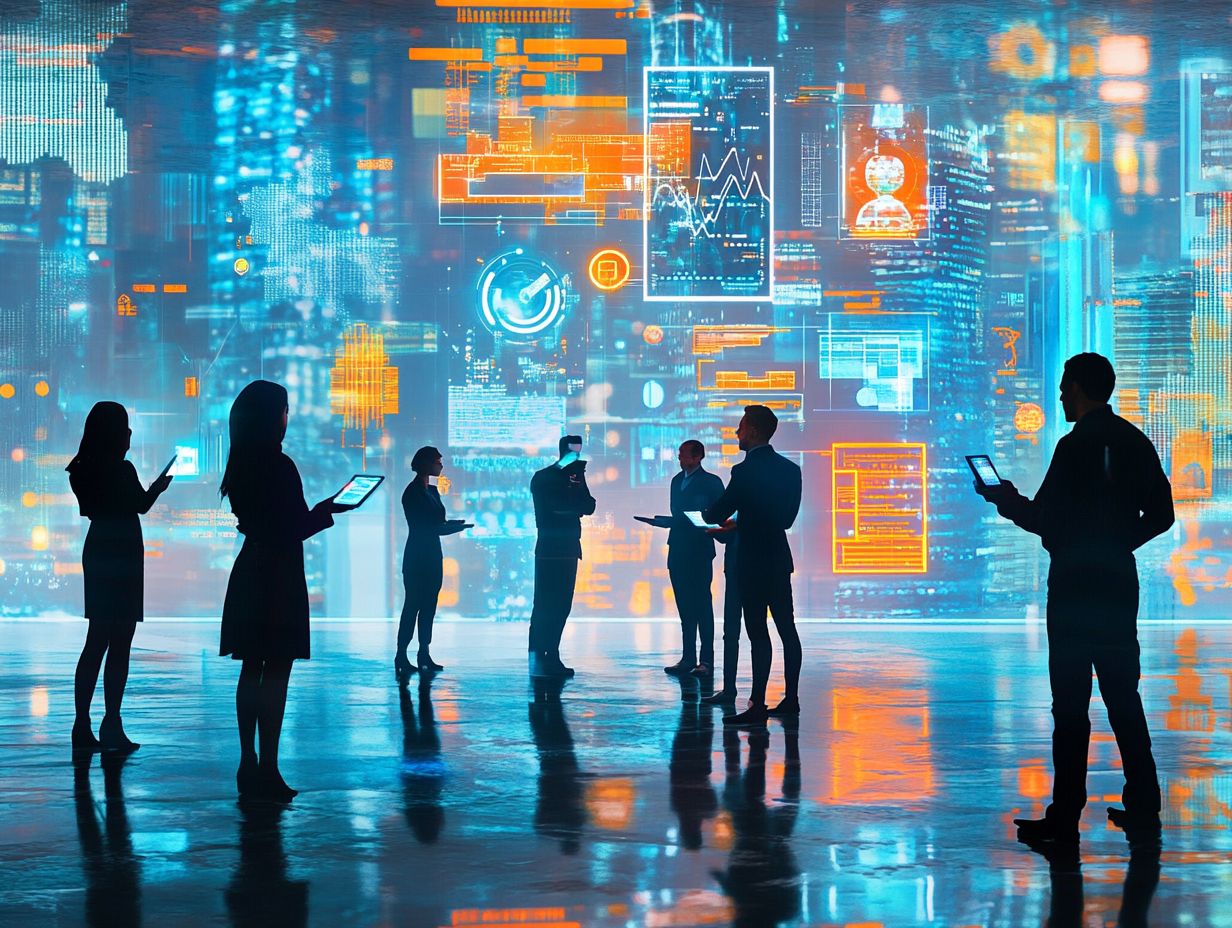
What is the future of copyright in emerging technologies?
The future of copyright in emerging technologies is constantly evolving and will continue to change as technology advances. For a deeper understanding, consider exploring the future of copyright in an international context. New laws and regulations are anticipated to address the specific challenges that arise with these advancements.
How does copyright apply to emerging technologies?
Copyright applies to emerging technologies the same way it applies to traditional forms of media. Creators of original content have the right to protect their work and prevent unauthorized use or reproduction, regardless of the platform or technology used.
What challenges does copyright face in emerging technologies?
One of the main challenges copyright faces in emerging technologies is the ease of digital reproduction and distribution. With the rise of online sharing and streaming platforms, it has become increasingly difficult to track and control the use of copyrighted material.
How can creators protect their work in emerging technologies?
Creators can protect their work in emerging technologies by registering for copyright protection and clearly stating their ownership of the material. They can also use digital watermarking a method to protect online content or encryption to track and monitor the use of their work online.
Will there be new laws and regulations to address copyright in emerging technologies?
New laws and regulations are on the horizon, ready to tackle the challenges of emerging technologies. As technology continues to advance, new challenges will arise, necessitating revisions and updates to existing laws to protect the rights of creators and users.
What impact will emerging technologies have on copyright law?
Emerging technologies are changing the landscape of copyright law. New challenges, such as illegal copying of content, artificial intelligence, and virtual reality, need to be addressed, especially in relation to the future of patents in emerging technologies.
These changes are vital for protecting creators. Understanding and adapting to these technologies will shape the future of copyright law.


